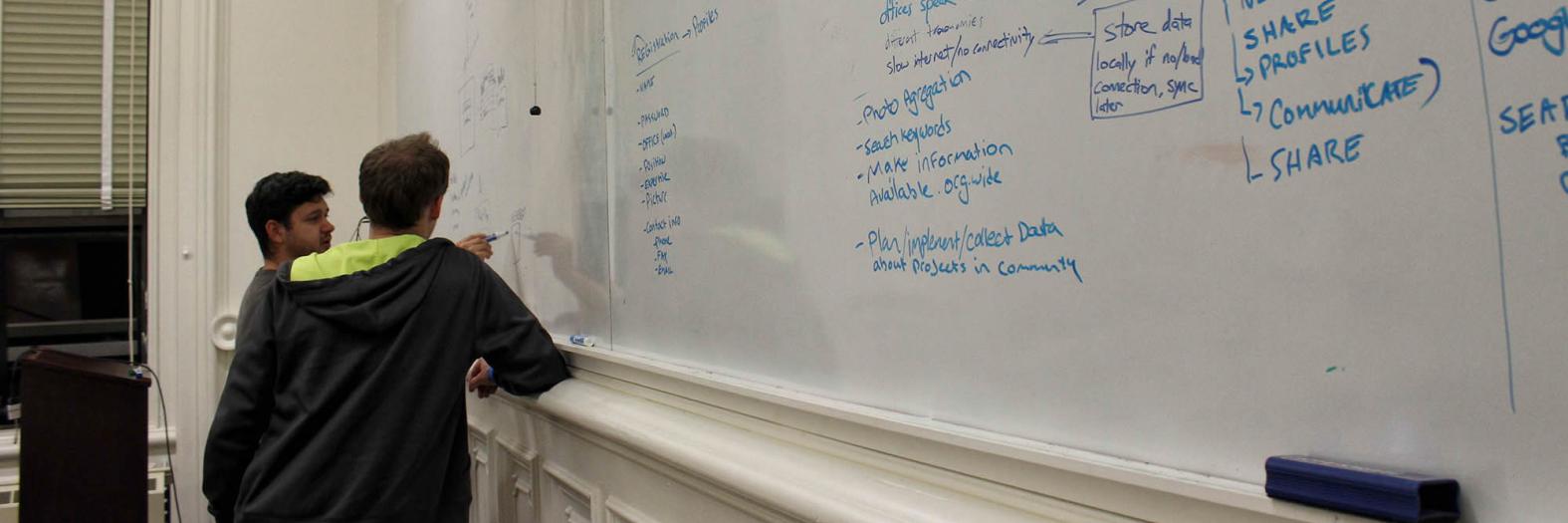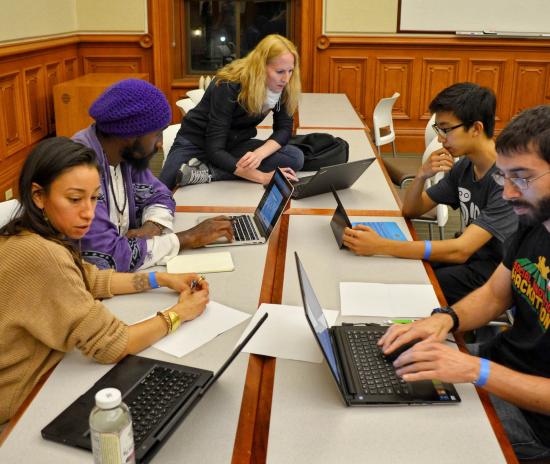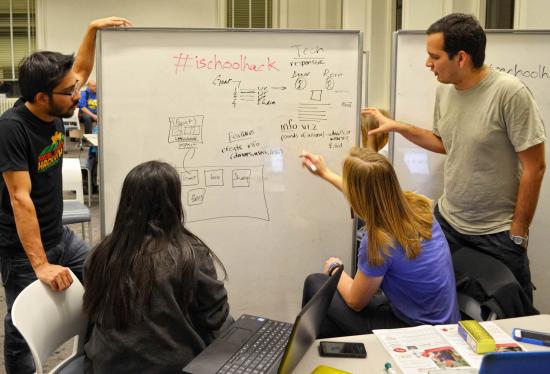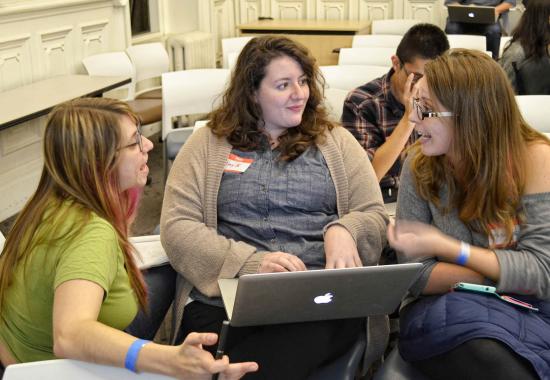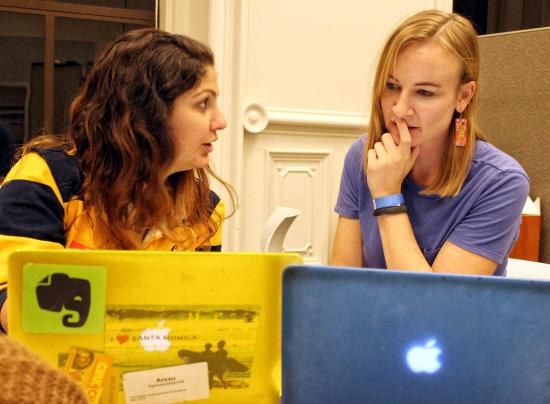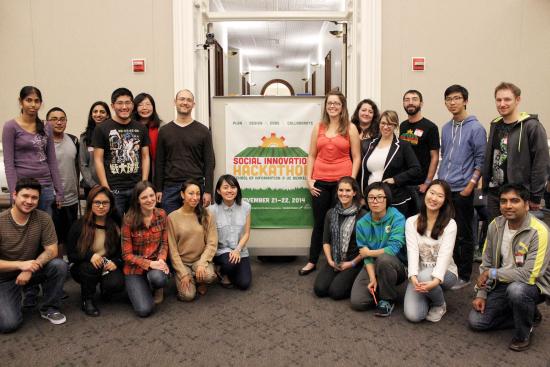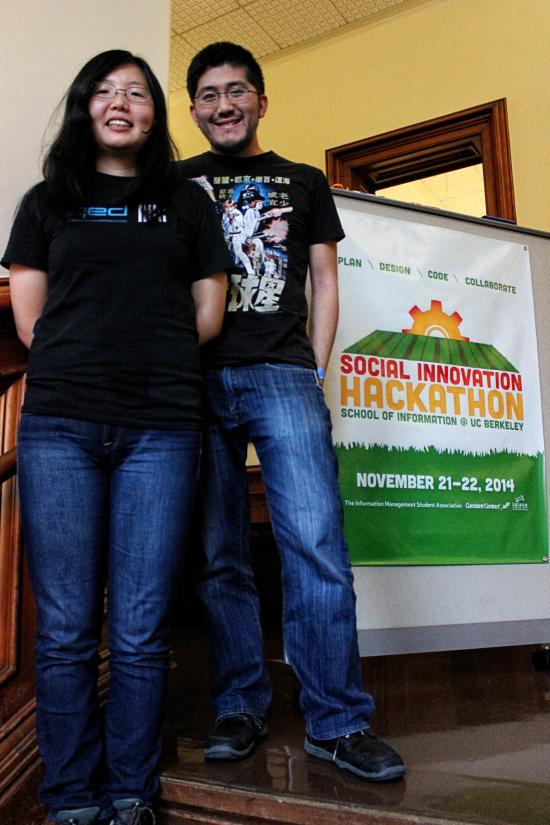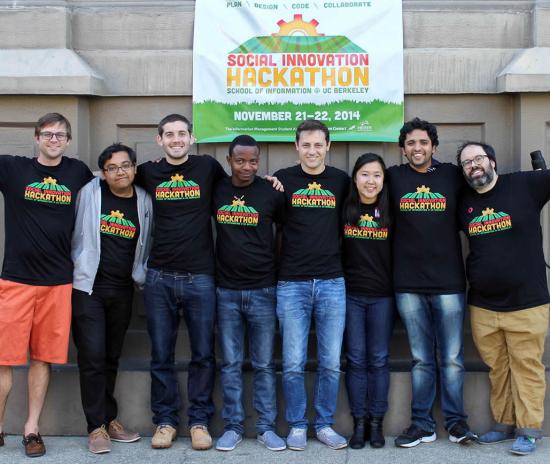Can technology help end world hunger?
Three dozen people gathered in South Hall a week ago to commit 24 hours of their time, energy, and skill in a Social Innovation Hackathon to support Heifer International.
Heifer International is fighting to end world hunger and poverty by linking communities and helps bringing sustainable agriculture and commerce to areas with a long history of poverty. But their work is often hampered by technological limitations — and that's where the hackathon comes in.
Staff from Heifer kicked off the hackathon Friday evening by presenting five challenges: specific technological tasks that could meet the organization’s needs and make an immediate impact on their work. Hackathon participants then divided into teams to work on different solutions to the problems.
The participants immediately started strategizing, designing, and coding; they hacked through the night on Friday and into the day Saturday, while the hackathon provided dinner, breakfast, lunch, and lots of caffeine. After a 24-hour hacking marathon, seven teams emerged with working prototypes to address Heifer International’s needs.
The hackathon was planned and organized by the Information Management Student Association (IMSA), the School of Information’s graduate student group. Participants came from across the UC Berkeley campus and around the Bay Area, including students in information, electrical engineering and computer science, statistics, development practice, bioengineering, education, and political science — plus UC Berkeley staff, students from other nearby universities, and local information professionals.
Winning Project: Android Data Collection App
The winning project was an Android app to support program monitoring and evaluation by collecting accurate data in the field and transmitting it back to headquarters. William Wu and Jiehua Chen of Quantitative Engineering Design designed and built the app over the 24 hours of the hackathon.
In many areas where Heifer International staff work, Internet connectivity is spotty or non-existent. In order to collect data from these communities, Heifer staff currently use paper documentation, which then must be manually entered in the Heifer office. This results in a considerable lag before data is available for analysis, and the potential for missing or inaccurate statistics.
The winning app allows the user to collect a standard set of field data, and caches it locally on staff members’ devices, helping alleviate the problem of inaccessible data. When the device detects an Internet connection, the information temporarily stored on the tablet or phone syncs to the database at Heifer headquarters. Data is immediately available online, with a variety of tables and maps automatically generated for data analysis and visualization.
The app also takes advantage of the mobile platform by automatically georeferencing and timestamping the data, and supporting the inclusion of photos taken in the field.
Other projects
Other projects addressed a variety of administrative and technological challenges faced by Heifer International:
-
A Knowledge Management Portal to enable Heifer’s field staff to store and share photos, stories, and other files that can be searched and viewed by users in various locations.
-
An online Animal Encyclopedia to raise awareness about the importance of livestock to the livelihoods of smallholder farmers around the world.
-
A scalable platform for the creation and maintenance of Country Websites for Heifer’s country program offices.
-
A Heifer Deals Website to offer limited-time offers where individuals can make a donation to Heifer and receive something in return.










